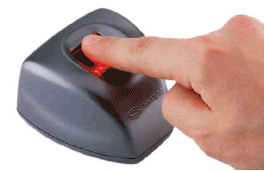Banks in Nigeria lost a total N159 billion to electronic fraud between 2000 and the first quarter of 2013.
Automated teller machine (ATM) fraud in 2000 amounted to N1.65 billion, 2001 (N3.12 billion), 2002 (N8.20 billion), 2003 (N5.13 billion), and 2004 (N89.43 billion).
After 2004, e-fraud declined for the next two years, 2005 (N6.76 billion) and 2006 (N2.74 billion), but spiked again in 2007 (N8.51 billion), and notched a watershed in 2008 (N34.50 billion).
The data, compiled by the Financial Institutions Training Centre (FITC), was provided TheNiche by Christabel Onyejekwe, Executive Director (Business Development), Nigerian Inter-Bank Settlements Systems (NIBSS).
Because of susceptibility to fraud, many bank customers avoid using ATM for payment.
The experience of a Lagos resident, Ugwu Chukwuma, sums the tale.
He opened a savings account with First Bank on Adeyemo Alakija Street, Victoria Island, Lagos in early 2009. He saved in about N490,000 by October that year but, within two days, lost it to fraudsters who operated in six tranches.
His bank statement showed that N210,000 was withdrawn on October 19, 2009 from six different branches through ATM. The following day, the balance N264,694 was reduced to N36,794.76. The withdrawals totalled N474,300.
Chukwuma’s lawyers from the chambers of Ikechukwu Onodi & Co, in a letter signed by the principal partner, Ikechukwu Onodi, requested First Bank to refund the money. It refused.
This is the sort of many cases that make the use of debit cards unattractive.
Unauthorised withdrawals and notice of dispensing cash without actual payment are part of the other problems caused by the use of ATM.
To provide solution, the Central Bank of Nigeria (CBN) last week directed banks to refund customers short-paid or debited without getting money dispensed from ATMs.
A circular issued by the CBN warned that banks which fail to make refunds will face sanctions from July 31.
The directive was silent about customers who lose money through ATM fraud.
But the CBN plans biometric identification of customers of banks who are expected to begin registration this week.
The registration will take place in 1,000 of the 1,410 bank branches in Lagos State to generate customers’ Bank Verification Number (BVN).
NIBSS Managing Director and head of BVN project management team, Ade Shonubi, explained that the pilot phase or the registration will be the model and basis for a roll-out of the solution to fraud.
This is in line with the phased approach adopted in the three-tiered Know Your Customer (KYC) and cashless policy of the CBN.
“We are adopting a phased roll-out approach starting with Lagos State. Across the nation at full roll-out, 10,000 enrolment sets will be deployed across 5,000 bank branches, implying deployment of two enrolment sets per bank branch,” Shonubi disclosed.
“In line with the commitment of the CBN and the Banker’s Committee to the financial enlightenment of Nigerians, all possible knowledge gaps will be closed through bespoke awareness programmes, customer education and engagement initiatives to ensure massive uptake of BVN by existing bank customers,” Shonubi said.
BVN captures basic biometric data which include facial image, the 10 fingerprints as well as other unique features of an individual.
It will utilise biometric technology to verify and authenticate the identity of bank customers at point of transaction.
BVN provides a uniform and single identity acceptable across the Nigerian financial system, as all bank accounts operated by an individual are tied to it.
It will help to ensure accountability, check identity theft, reduce exposure to fraud, enhance credit advancement, protect bank accounts from unauthorised access and encourage financial inclusion.
Shonubi insisted that the initiative is to guarantee the safety of the financial system and is in the interest of all Nigerians.
Bank customers are expected to follow some processes for the enrolment.
Walk into a bank, fill and submit the BVN enrolment form, present yourself for data capturing (fingerprint, facial image, et cetera).
An acknowledgment slip with the transaction identity (ID) will be issued to the customer; within 24 hours the system confirms the application; BVN is generated, and the customer receives a text message to pick it up.
Former CBN Governor, Lamido Sanusi, heralded the pilot phase of the BVN on February 14 this year, scheduled to run till May 31, after which a full roll-out would commence.











